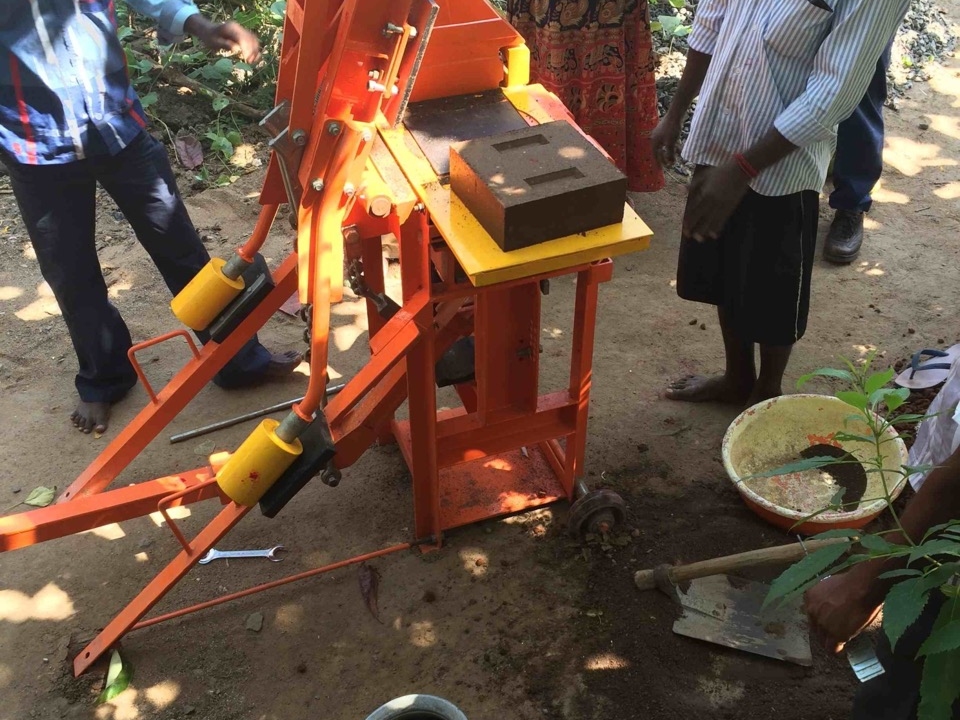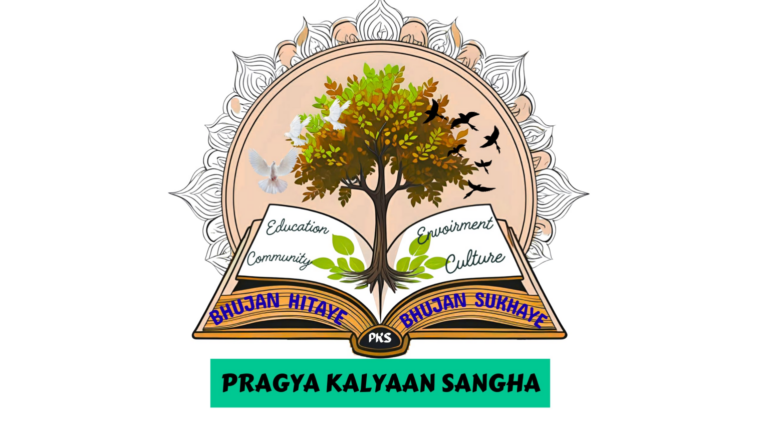Project by the Foundation for His Sacred Majesty (FHSM) Mr. Gautham Prabhu Nagappan (Executive Director)
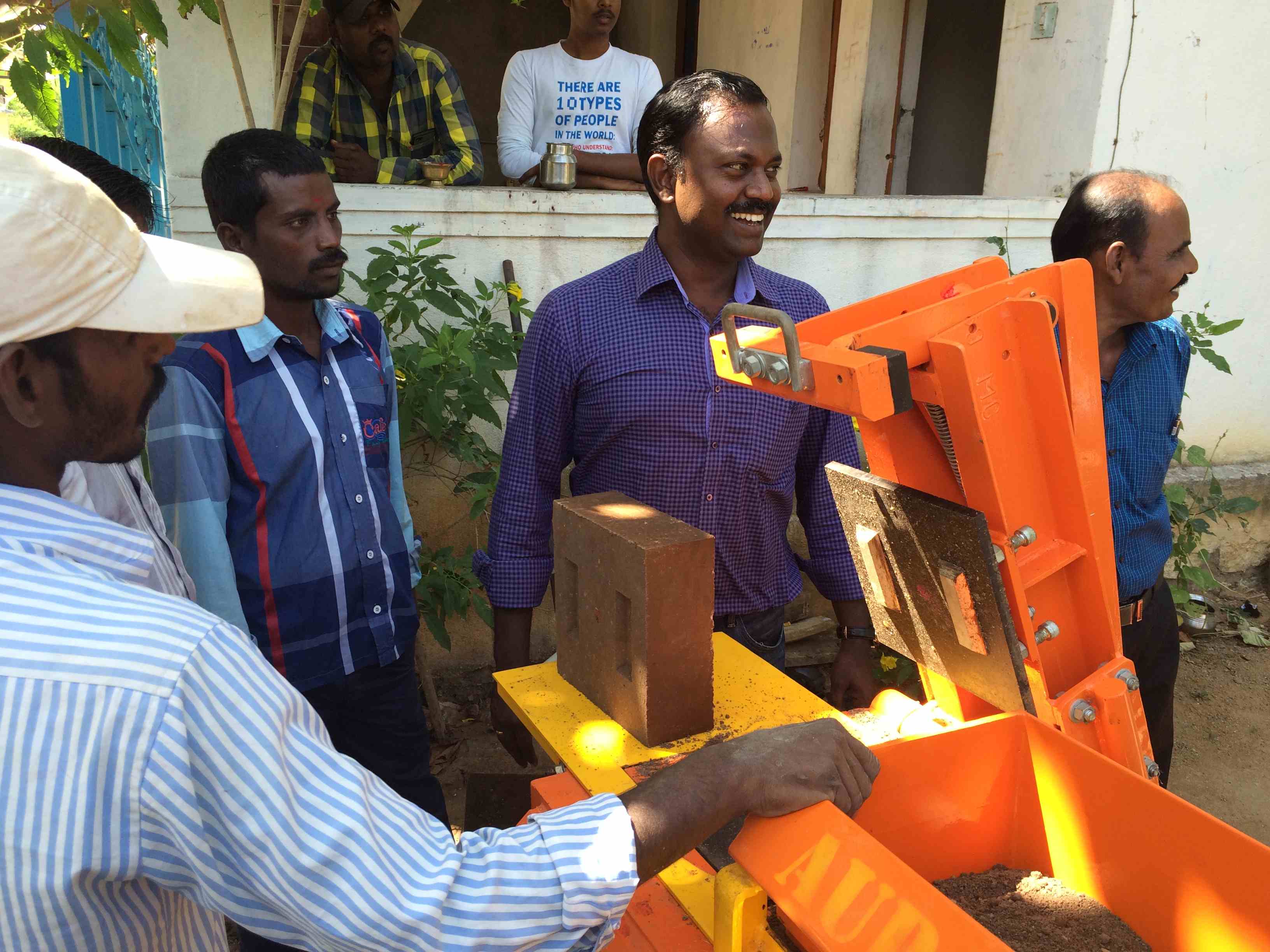
 Temple Design: The Sukhavati Eco-Temple will be a domed stupa made of Compressed Stabilized Earth Blocks (CSEB) using local earth and local labor as part of a community income-generating project making CSEBs. Presently, they have one CSEB machine on loan from the alternative eco-community of Auroville, located not far away. Designers in Auroville have offered their expertise in developing the temple. At this point, however, seed capital is needed to purchase these CSEB making machines with one machine costing US$3,300. It is estimated that 50 days of work can produce enough bricks for sale to pay for one machine and that 5 machines will be needed to construct the temple. One of the members of the Eco-Temple Community Temple Project, Rev. Hidehito Okochi from Japan, has experience himself in building and financing from scratch a solar powered eco-temple. He offered two ideas to help generate seed capital: one is that those who offer money as dana for the construction of the temple would have their names stamped into the CSEB bricks which would be seen after construction is finished; a second is to create a micro-credit bank. Gauthama has already envisioned one for this work, tentatively called the ABCDE (Ambedkar Bank for Community Development and Empowerment). A final thought about the temple itself came from the peer group evaluation at the eco-temple meeting in Sri Lanka in January 2016. Other participants felt the stupa/temple can be designed for other uses besides just religious services, for example as a temple school or even a temple cafeteria. Gauthama remarked that this goes against cultural norms in the region, and in fact most Buddhist cultures. However, some of the innovators in the eco-temple group, such as Rev. Okochi, have successfully encouraged their communities to adopt new styles for the sake of deeper ecological values.
Temple Design: The Sukhavati Eco-Temple will be a domed stupa made of Compressed Stabilized Earth Blocks (CSEB) using local earth and local labor as part of a community income-generating project making CSEBs. Presently, they have one CSEB machine on loan from the alternative eco-community of Auroville, located not far away. Designers in Auroville have offered their expertise in developing the temple. At this point, however, seed capital is needed to purchase these CSEB making machines with one machine costing US$3,300. It is estimated that 50 days of work can produce enough bricks for sale to pay for one machine and that 5 machines will be needed to construct the temple. One of the members of the Eco-Temple Community Temple Project, Rev. Hidehito Okochi from Japan, has experience himself in building and financing from scratch a solar powered eco-temple. He offered two ideas to help generate seed capital: one is that those who offer money as dana for the construction of the temple would have their names stamped into the CSEB bricks which would be seen after construction is finished; a second is to create a micro-credit bank. Gauthama has already envisioned one for this work, tentatively called the ABCDE (Ambedkar Bank for Community Development and Empowerment). A final thought about the temple itself came from the peer group evaluation at the eco-temple meeting in Sri Lanka in January 2016. Other participants felt the stupa/temple can be designed for other uses besides just religious services, for example as a temple school or even a temple cafeteria. Gauthama remarked that this goes against cultural norms in the region, and in fact most Buddhist cultures. However, some of the innovators in the eco-temple group, such as Rev. Okochi, have successfully encouraged their communities to adopt new styles for the sake of deeper ecological values.

 Surrounding Lands: The Sukhavati Eco Temple is located on 10 acres of now open plain. The property has good water resources with a nearby lake. A dried up river bed runs through the property, which needs a basic dredging to access the water table only a few feet underground. This water resource has enabled them to already start digging wells for not only to develop the land but also potentially as an income generating project selling drinking water. As this time, more bore wells are still needed at a cost of US$2,500/well. The entire property covers 150 acres in land that has been donated yet still has to go through a bureaucratic process of land title change. Gauthama seeks to develop this larger property as both for reforested bio-diverse land and for agricultural development of millet farming, a healthier and less resource intensive crop than white rice. The land will also be used to develop micro-grid solar, biomass, and other forms of clean energy. One of the local leaders, Mr. Venkatesan, has already developed a business plan for a small, 8kW solar power plant. Ironically, there is a huge 40gW solar farm on a nearby property that the government is building. As a testament to Gautham’s earlier comments, none of the workers at the site came from the local area, and the electricity will be fed back into the main grid with no direct access for any of the neighboring communities. That said, it was remarkable to visit a major government development site that wasn’t adversely affecting the local environment of the community.
Community Development: FHSM has a wide variety of social initiatives in the surrounding community. For example, they have installed low cost, environmentally friendly toilet and sewage systems in some homes, which is a particular need for Dalit families who often have poor access to closed toilet systems. Indeed, one is reminded of the horrific rape and public hanging of two Dalit girls in Uttar Pradesh in 2014 who were victimized after going to the bathroom in a field because their home had no toilet system. Along with supporting women’s and children’s educational groups, FHSM has been working hard to develop local youth groups. These groups are largely thematized on Buddhist study and community service themes. They are attempting to build associations of young people focused on improving their education with a spirit of serving and giving back to their community. Seeing the energy and investment put into succeeding generations of community leaders felt like an especially important activity for the sustainability of FHSM’s goals and work.
Surrounding Lands: The Sukhavati Eco Temple is located on 10 acres of now open plain. The property has good water resources with a nearby lake. A dried up river bed runs through the property, which needs a basic dredging to access the water table only a few feet underground. This water resource has enabled them to already start digging wells for not only to develop the land but also potentially as an income generating project selling drinking water. As this time, more bore wells are still needed at a cost of US$2,500/well. The entire property covers 150 acres in land that has been donated yet still has to go through a bureaucratic process of land title change. Gauthama seeks to develop this larger property as both for reforested bio-diverse land and for agricultural development of millet farming, a healthier and less resource intensive crop than white rice. The land will also be used to develop micro-grid solar, biomass, and other forms of clean energy. One of the local leaders, Mr. Venkatesan, has already developed a business plan for a small, 8kW solar power plant. Ironically, there is a huge 40gW solar farm on a nearby property that the government is building. As a testament to Gautham’s earlier comments, none of the workers at the site came from the local area, and the electricity will be fed back into the main grid with no direct access for any of the neighboring communities. That said, it was remarkable to visit a major government development site that wasn’t adversely affecting the local environment of the community.
Community Development: FHSM has a wide variety of social initiatives in the surrounding community. For example, they have installed low cost, environmentally friendly toilet and sewage systems in some homes, which is a particular need for Dalit families who often have poor access to closed toilet systems. Indeed, one is reminded of the horrific rape and public hanging of two Dalit girls in Uttar Pradesh in 2014 who were victimized after going to the bathroom in a field because their home had no toilet system. Along with supporting women’s and children’s educational groups, FHSM has been working hard to develop local youth groups. These groups are largely thematized on Buddhist study and community service themes. They are attempting to build associations of young people focused on improving their education with a spirit of serving and giving back to their community. Seeing the energy and investment put into succeeding generations of community leaders felt like an especially important activity for the sustainability of FHSM’s goals and work.
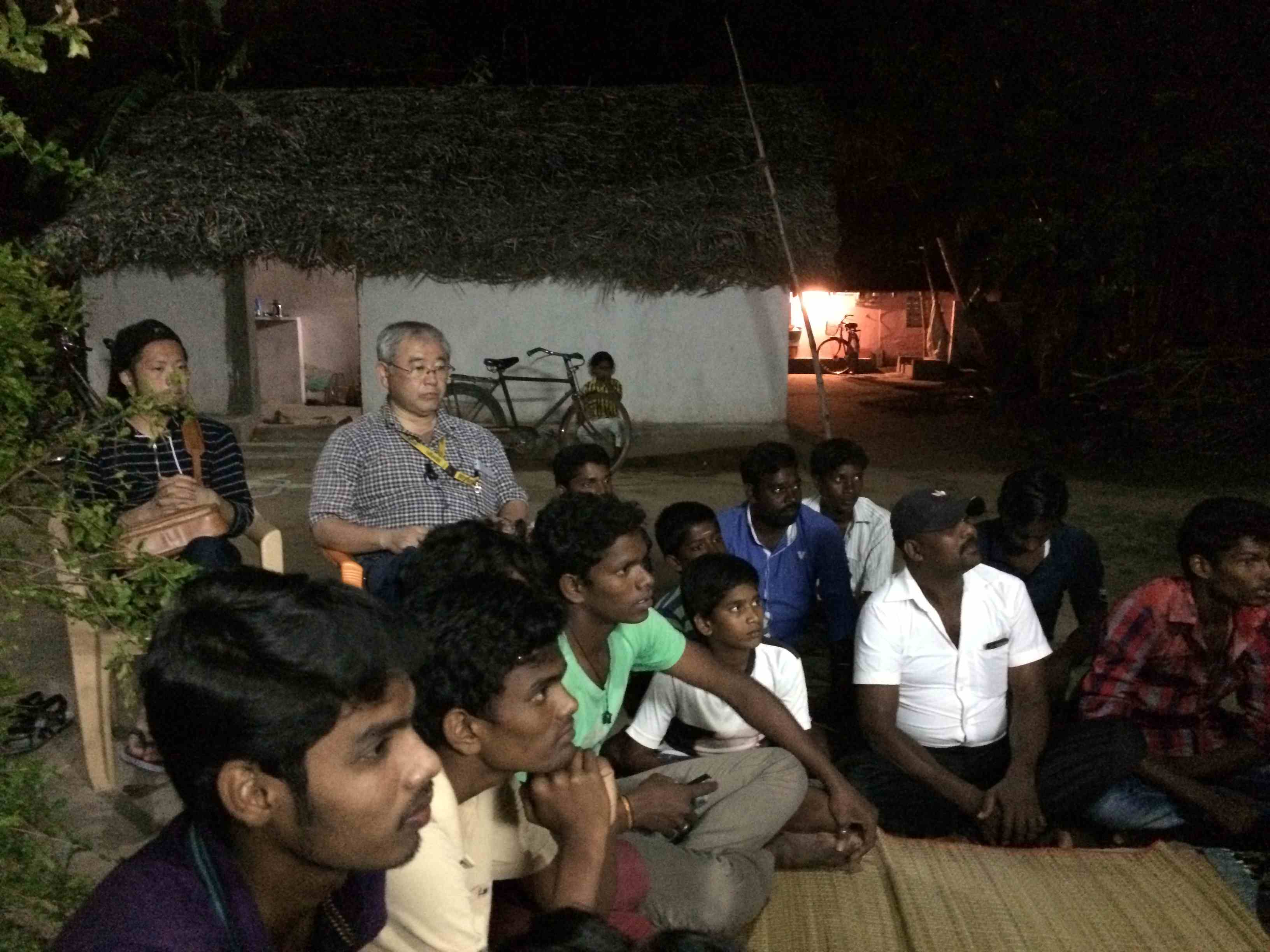
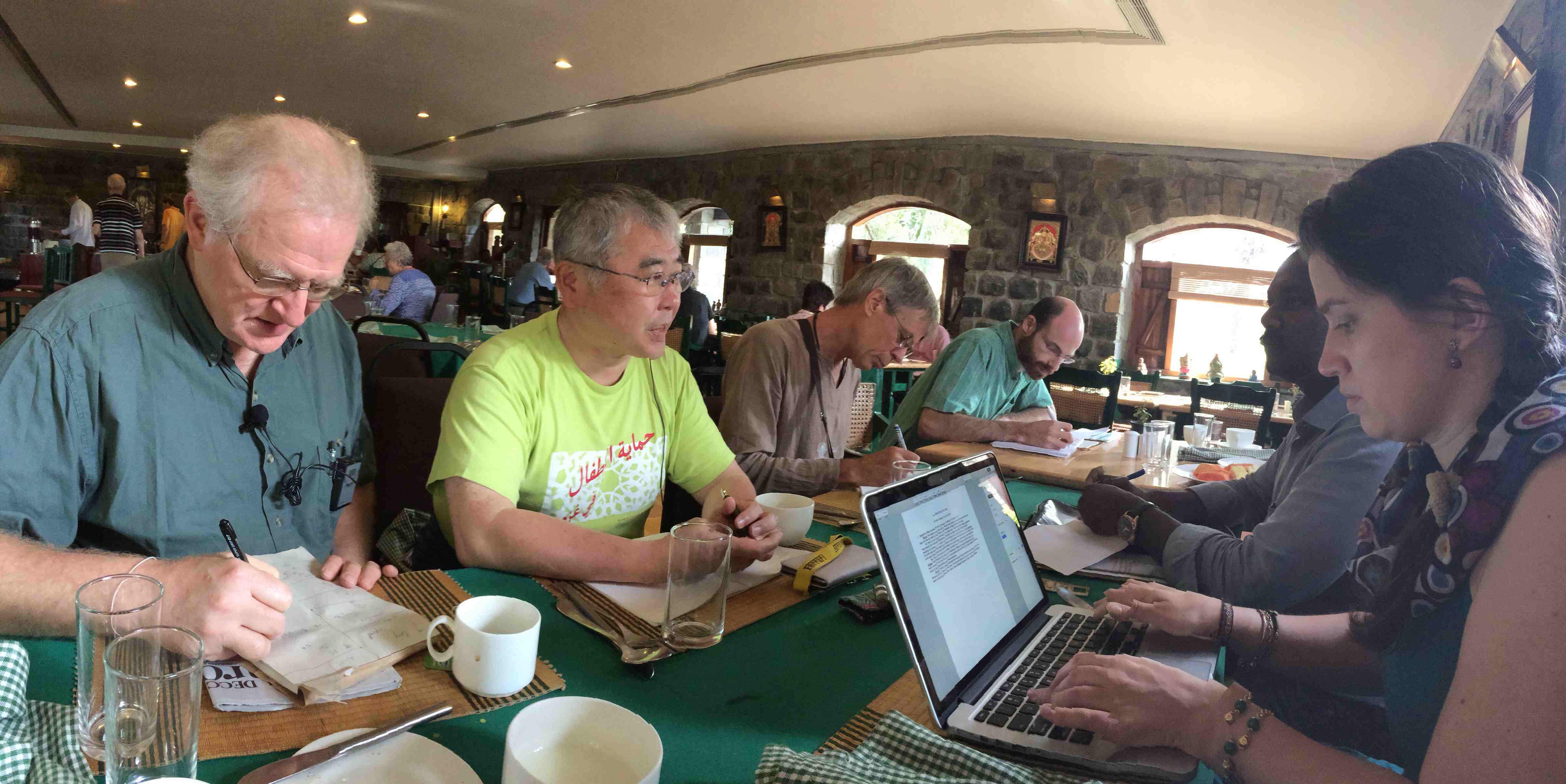
- Create a more detailed topographical and design map of the land and temple for potential fundraising; perhaps a digital version using Google Maps so names can be translated to other languages.
- Create a business plan for the temple including the self-sustaining aspects of it. There is a need to communicate the economic aspects of the work with the community development, human rights, peace building, and environmental aspects of the work. This will attract a wider range of donors who are not necessarily interested in Dalit or Buddhist issues and also serve as an exemplary project for other countries as well.
- Based on the above plan, create a power point for different fundraising audiences for Gauthama to do fundraising trips to: Europe, China-Japan-Korea, and the United States
- Create an educational unit around the concept of the Eco-Temple Community Development Project on such themes as good governance, environmental protection, and collective action. The new INEB Institute can collaborate in model curriculum building and the possibility of holding such programs in Tamil Nadu for their international students: 4-7 days study visits (Spring 2018); 8-10 week participatory research projects (Summer 2018)
Project Update: December 2016
Visit to Japan in June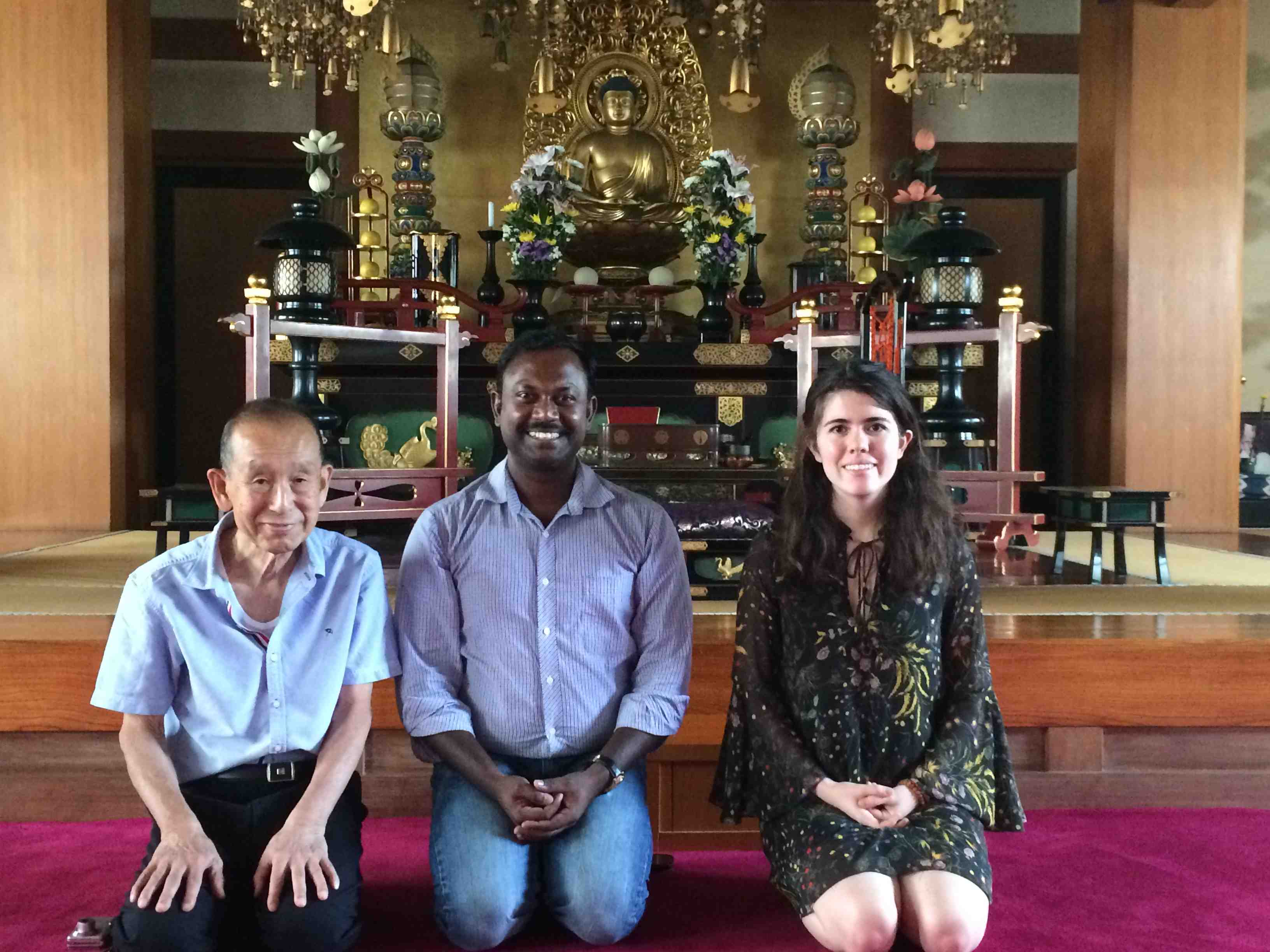
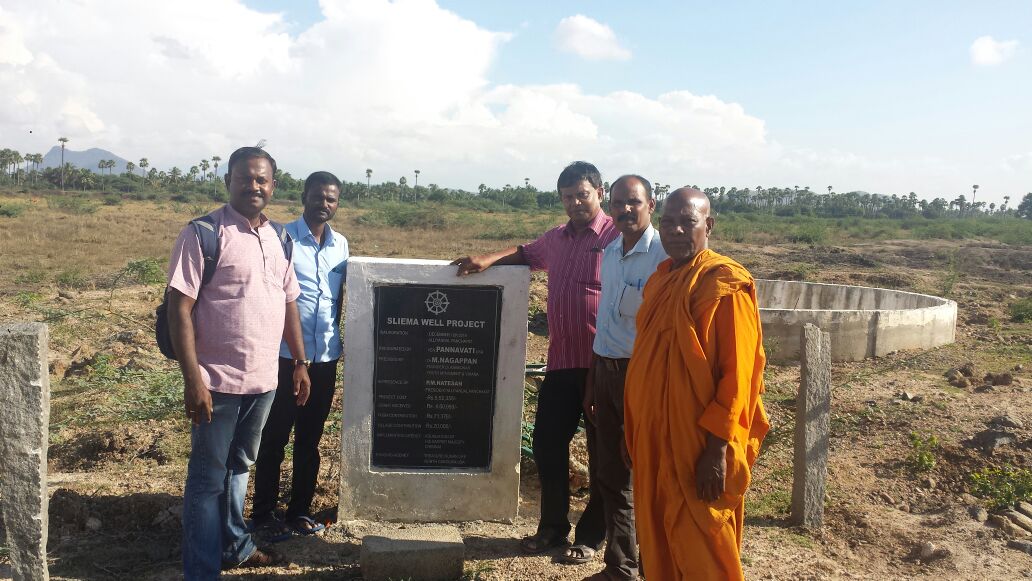 Prof. Kalinga Seneviratne from Chulalongkorn University, Thailand visited the Sukhavati temple land on 4th of December to explore the possibility of raising funds in Malaysia, Singapore, and Sri Lanka. He is a good friend of INEB chairman Harsha Navaratne and has good relations with foundations in Sri Lanka that support environmental friendly activities and Buddhist activities. Prof. Kalinga also witnessed the social work projects of FHSM, such as our open well project that provide water access to Dalit villages, sanitary projects that provide individual toilets to women, a skill development program for youths, and a dry land farm project that creates greater economic sustainability and prevent suicides among farmers.
Meeting with INEB Chairman Harsha Navaratne in Chennai
FHSM has arranaged a meeting with INEB Chairman, Harsha Navaratne, in order to discuss the developments of the eco-temple and also about the genuineness of Sri Lankan organisations that have expressed interest in supporting FHSM for the eco-temple project. According to Harsha, Ven. Shobita Omalpe has very good links with China and could connect FHSM directly to Chinese donors. He gave a positive note about Ven. Shobitha Omalpe who has great interest in environment friendly projects and has asked us to meet him in Sri Lanka.
Sukhavati Eco-Temple meeting with Tamil Buddhist Federation
Prof. Kalinga Seneviratne from Chulalongkorn University, Thailand visited the Sukhavati temple land on 4th of December to explore the possibility of raising funds in Malaysia, Singapore, and Sri Lanka. He is a good friend of INEB chairman Harsha Navaratne and has good relations with foundations in Sri Lanka that support environmental friendly activities and Buddhist activities. Prof. Kalinga also witnessed the social work projects of FHSM, such as our open well project that provide water access to Dalit villages, sanitary projects that provide individual toilets to women, a skill development program for youths, and a dry land farm project that creates greater economic sustainability and prevent suicides among farmers.
Meeting with INEB Chairman Harsha Navaratne in Chennai
FHSM has arranaged a meeting with INEB Chairman, Harsha Navaratne, in order to discuss the developments of the eco-temple and also about the genuineness of Sri Lankan organisations that have expressed interest in supporting FHSM for the eco-temple project. According to Harsha, Ven. Shobita Omalpe has very good links with China and could connect FHSM directly to Chinese donors. He gave a positive note about Ven. Shobitha Omalpe who has great interest in environment friendly projects and has asked us to meet him in Sri Lanka.
Sukhavati Eco-Temple meeting with Tamil Buddhist Federation
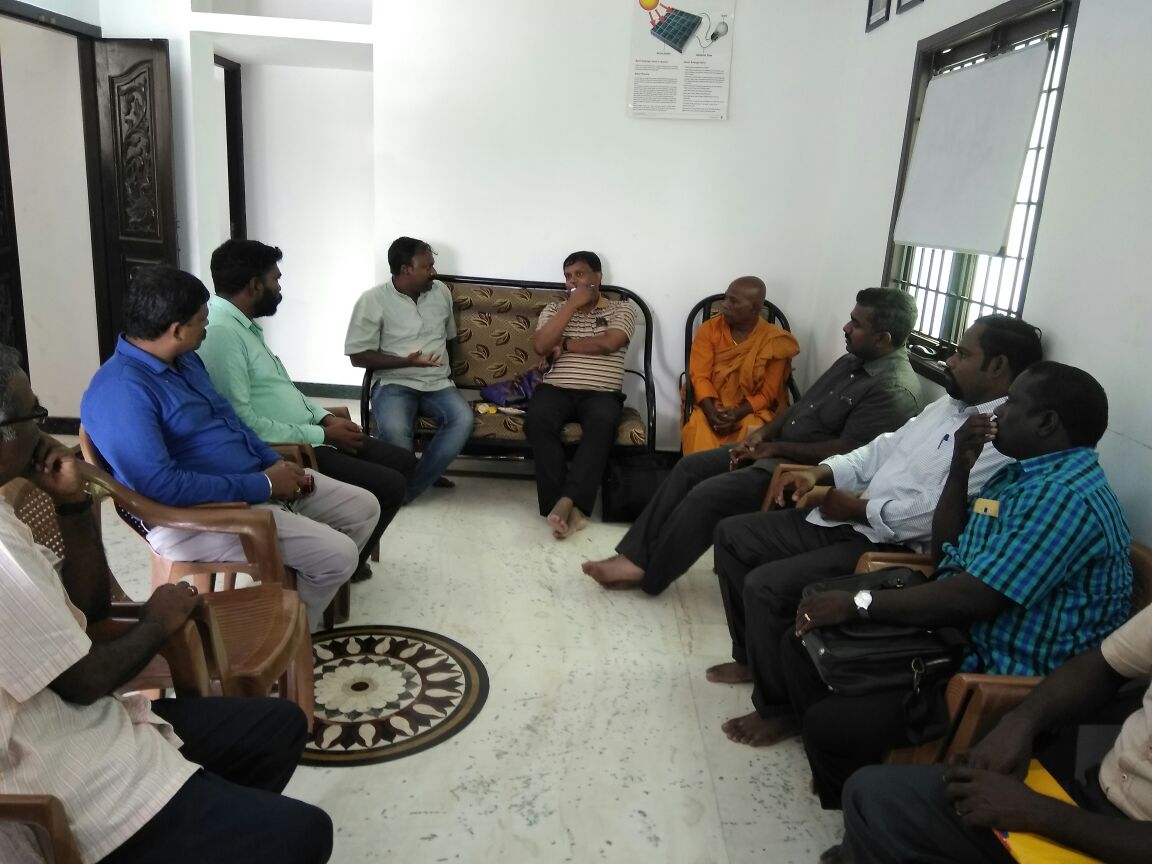 A meeting was organised among the Tamil Buddhist Federation, which was formed under the aegis of VIHARA (the Buddhist revival movement) in order to discuss the developments of the eco-temple project. The members representing more than 15 Buddhist organisations have expressed their unconditional moral support to this project. Prof. Kalinga was invited for the presentation and discussion. The Tamil Buddhist Federation also unanimously agreed that the Federation will not interfere in any matters pertaining to Sinhalese-Tamil issues in Sri Lanka and shall not receive grants from the Sri Lankan Government on moral grounds. However, foundations with an apolitical nature and a genuine intention for supporting the eco-temple shall be encouraged to participate in resource mobilisation for the eco-temple.
Sakyadhita Conference in Hong Kong
Sister Christie from the International Lay Buddhist Organisation has expressed her interest to invite members from FHSM to give presentations at the 15th Sakyadhita International Conference on Buddhist Women to be held in Hong Kong in June 2017. She also encouraged us to organise a workshop that would help us connect with Buddhist donors who might be interested to support the eco-temple project. The concept note for the workshop is still underway and shall be submitted soon to the conference organisers.
INEB Founder Ajahn Sulak Sivaraksa to visit FHSM in January 2017
INEB founder, Ajahn Sulak Sivaraksa will visit FHSM in January 2017 in order to attend programs organized by FHSM on the revival of Buddhism in Tamil Nadu. FHSM plans to take this opportunity to show Ajahn the Sukhavati Eco-Temple project site and received his blessing.
A meeting was organised among the Tamil Buddhist Federation, which was formed under the aegis of VIHARA (the Buddhist revival movement) in order to discuss the developments of the eco-temple project. The members representing more than 15 Buddhist organisations have expressed their unconditional moral support to this project. Prof. Kalinga was invited for the presentation and discussion. The Tamil Buddhist Federation also unanimously agreed that the Federation will not interfere in any matters pertaining to Sinhalese-Tamil issues in Sri Lanka and shall not receive grants from the Sri Lankan Government on moral grounds. However, foundations with an apolitical nature and a genuine intention for supporting the eco-temple shall be encouraged to participate in resource mobilisation for the eco-temple.
Sakyadhita Conference in Hong Kong
Sister Christie from the International Lay Buddhist Organisation has expressed her interest to invite members from FHSM to give presentations at the 15th Sakyadhita International Conference on Buddhist Women to be held in Hong Kong in June 2017. She also encouraged us to organise a workshop that would help us connect with Buddhist donors who might be interested to support the eco-temple project. The concept note for the workshop is still underway and shall be submitted soon to the conference organisers.
INEB Founder Ajahn Sulak Sivaraksa to visit FHSM in January 2017
INEB founder, Ajahn Sulak Sivaraksa will visit FHSM in January 2017 in order to attend programs organized by FHSM on the revival of Buddhism in Tamil Nadu. FHSM plans to take this opportunity to show Ajahn the Sukhavati Eco-Temple project site and received his blessing. Tags: buddhismeco-temple

